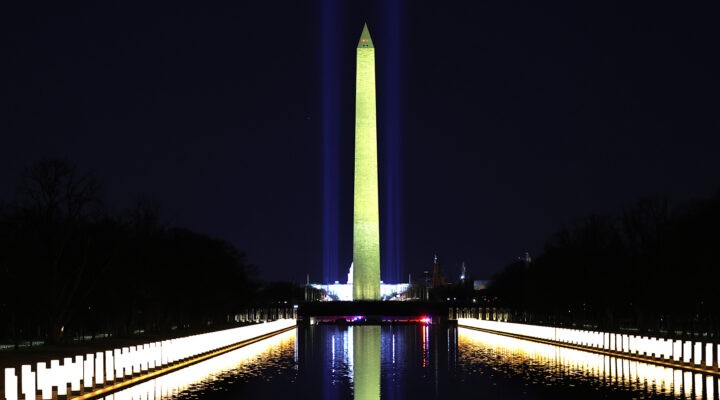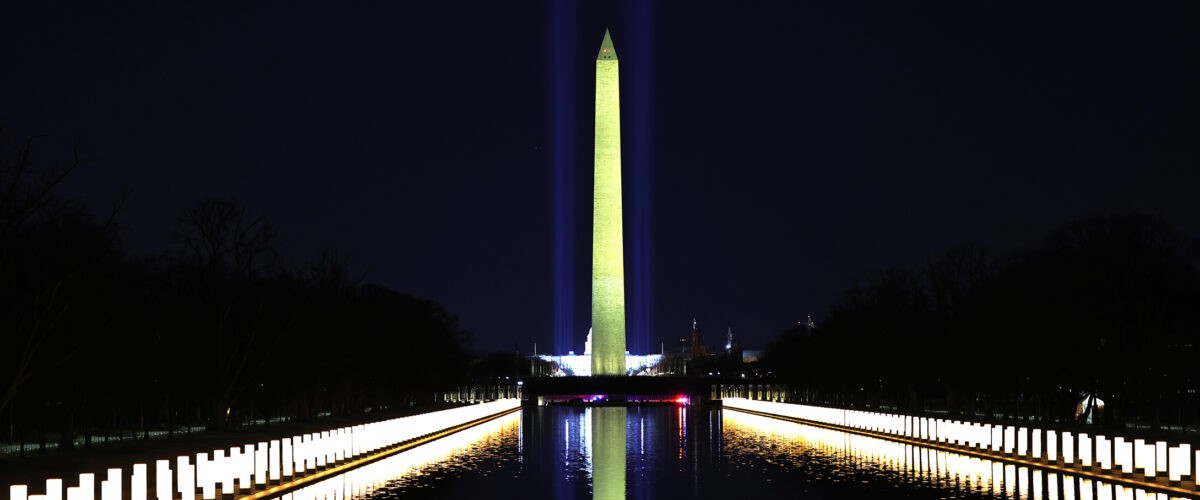In his classic work Why I Am a Christian, the late Anglican theologian John Stott prophetically penned gloomy words that, at the time, mostly fell on deaf ears.
“The technocratic society, which diminishes and even destroys transcendence and significance,” Stott wrote, “is destructive of human community as well. Ours is an era of social disintegration, especially in the West. People find it increasingly difficult to relate to one another or to find love in a loveless world.”
Stott, who penned those words in 2003, had little idea that his prophetic insight would find climactic fulfillment a mere 10 years after his death.

David Bumgardner
Today, on the anniversary of armed insurrectionists storming the United States Capitol to forcibly overturn the results of a lawful election, Stott’s words pestilently and naggingly reverberate in my mind. Even a cursory glance at the West’s political-religious landscape reveals the immense damage that the global rise of authoritarianism has dealt to our collective conceptions of transcendence, significance and human community.
Our consciences are seared.
Our souls are weary.
Our minds struggle in assessing the damage.
This, of course, all comes amid a pandemic that has yielded 5.5 million global deaths.
To borrow a phrase from Carl F.H. Henry’s flagship work, the events of Jan. 6 were an assault on “the uneasy conscience” of every American, regardless of their identification as Republican or Democrat, Black or white, urban or rural, evangelical or mystic.
A lingering grief
House Speaker Nancy Pelosi has announced plans for a prayer vigil to solemnly commemorate the brutish attack. And while it is likely that nearly every American will join in grieving the lives lost that day, there remains a lingering, ambiguous grief.
Perhaps we grieve for the national uncertainty that lies ahead. Perhaps some of us grieve for relationships with friends and family that were tragically torn apart because of that day. Many of us, including myself, grieve for the blasphemous ways the name our Lord Jesus Christ was invoked and the blasphemies that were uttered by non-believers because of the sin and hypocrisy of the many evangelicals who were either there that day or provided post facto justification.
An imperative for moral clarity
But amid this grief, we must speak with resounding moral clarity.
“Amid this grief, we must speak with resounding moral clarity.”
The Jan. 6 insurrection occurred a mere four months after I lost my license to the Christian ministry for publicly endorsing Joe Biden in the 2020 election. I have gone on the record in stating that I regret having involved myself in politics as a minister. And yet, there remains in me a hesitant tinge of vindication of which I am almost (but not quite) ashamed for sensing.
When I lost my credentials to the ministry for doing what I believed was right at the time, I was told that I was dividing God’s people.
Now, one year after I wept in front of my television as the conglomeration of light from millions of pixels that depicted pictures of deceased image-bearers of God filled the small living room of my house, I feel compelled to say publicly what I said privately to the multiple individuals that day who had previously accused me of sowing division: This day proves that some things are worth dividing over.
When politicians suggest that the way of Jesus “has gotten us nothing,” it is time to divide.
When Christians shamelessly platform atheists who live debaucherously and attack ministers nearing their death, it is time to divide.
When services of Christian worship turn into political rallies so much so that the way of Jesus is confused with the way of Caesar, it is time to divide.
And when one’s political aspirations driven by conspiratorial fear outweighs one’s duty to God, neighbor and country that it leads one to believe violence is a divine service, it is time to divide.
The divisive way of the Cross
While Stott’s thesis that the West would see a death in transcendence, significance and human community was correct, I am thankful he did not end his work there. Just a few paragraphs later, Stott would conclude, “Although, alas! there are many Christian communities and fellowships that fall short of the divine ideal, there are others that beautifully approximate to it. … Moreover, it is our Christian claim (confident I know, humble I hope) that those who seek will find — in Christ and in his new community. For he died to reconcile us to God; he demonstrated through his life and death our fundamental worth; and he introduces us into his new society.”
“We must remember that our Lord was crowned king not on a throne, but on a Cross.”
We must remember that our Lord Jesus Christ once said he did not come to bring peace, but a sword (Matthew 10:34-36).
We must remember that he predicted that his way of peace, love and selfless sacrifice without the thought of return would doubtlessly infuriate his opponents and lead to the persecution of his disciples.
We must remember that when the people of God expected him to ride into Jerusalem on a beast of war to conquer, he humbly rode in on the foal of a beast of burden so he could save (Matthew 21:5).
And finally, we must remember that our Lord was crowned king not on a throne, but on a Cross. Until we see him come again in “great power and glory” (Mark 13:26) to consummate his rule with a sword coming out of his mouth, we too must walk the way of the Cross, embracing his inherently divisive message.
David Bumgardner currently serves as a Clemons Fellow with BNG. He is a senior at Texas Baptist College, the undergraduate arm of Southwestern Baptist Theological Seminary and is member at Cornerstone Baptist Church in Arlington, Texas. Follow him on Twitter @david_bumg.
Related articles:
Facing white Christianity’s role in the Jan. 6 insurrection | Opinion by Robert P. Jones
On Jan. 6: Truth or consequences | Opinion by Erich Bridges
For me, January 6 began as a day of prayer and ended as a day of disbelief | Opinion by Julie Pennington-Russell


